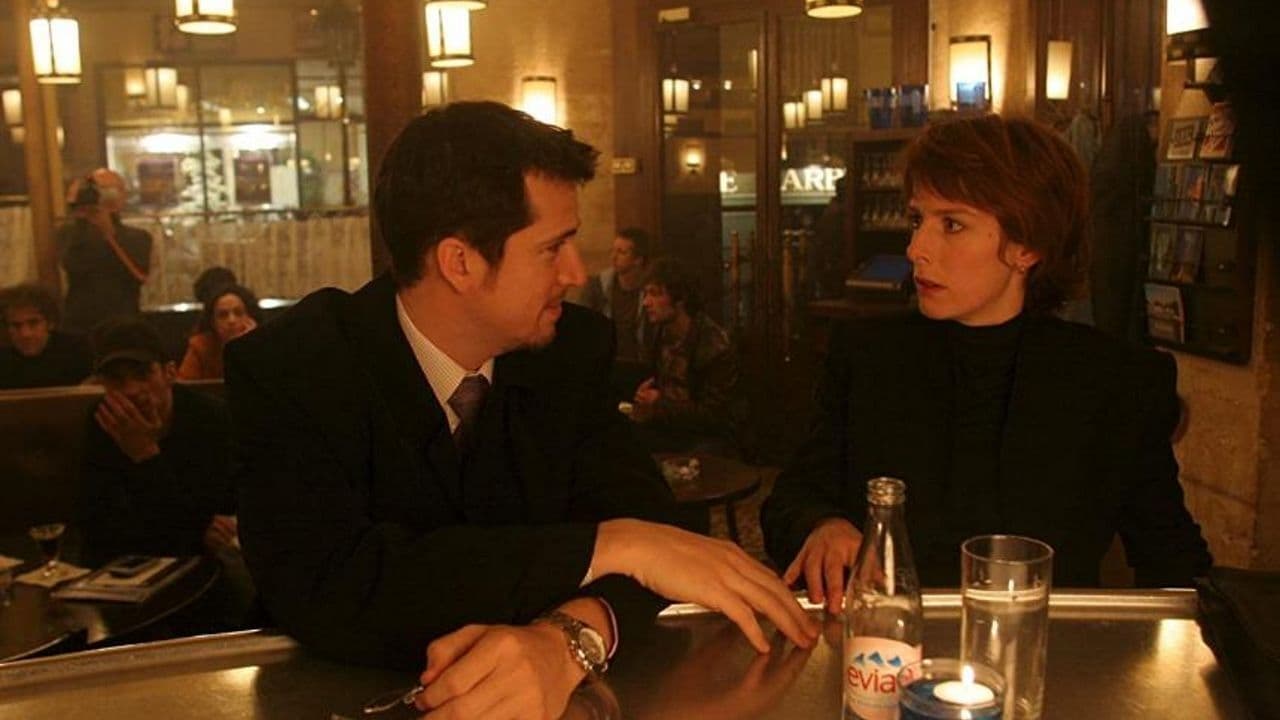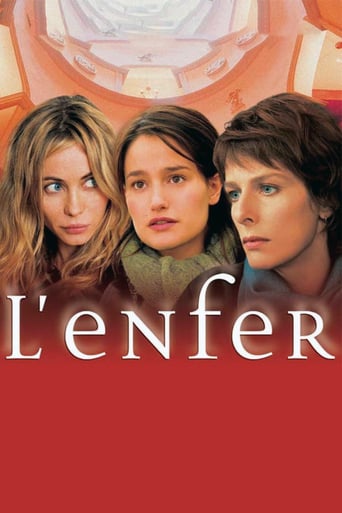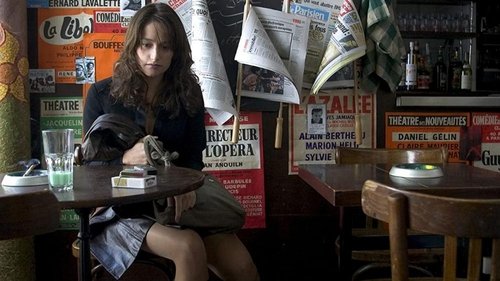Dorathen
Better Late Then Never
Orla Zuniga
It is interesting even when nothing much happens, which is for most of its 3-hour running time. Read full review
Michelle Ridley
The movie is wonderful and true, an act of love in all its contradictions and complexity
Cassandra
Story: It's very simple but honestly that is fine.
Claudio Carvalho
In Paris, a family is victim of a tragic incident, when the patriarch is denounced by his wife of pedophilia. Years later, the three sisters have independent dysfunctional lives and never see each other. The middle sister Sophie (Emmanuelle Béart) finds that her beloved husband and photographer Pierre (Jacques Gamblin) is unfaithful and is having an affair with Julie (Maryam d'Abo) and he leaves her. When the lover discovers that Pierre has two children, she ends the affair. The youngest, Anne (Marie Gillain), is student of Sorbonne and has a crush and gets pregnant of her professor Frédéric (Jacques Perrin), who is married and father of her best friend. The oldest sister, Céline (Karin Viard), is a lonely woman that periodically travels by train to visit her handicapped dumb mother Marie (Carole Bouquet) that is trapped in a wheelchair in an asylum for elders. When the stranger Sébastien (Guillaume Canet) contacts Céline, she believes he is a shy admirer; however, after an awkward encounter, he reveals secrets from the past that will affect the relationship among the sisters."L' Enfer" is a heavy drama of sisters in love, actually doomed love, and is an analogy to the Medea Greek tragedy: Sophie loves her unfaithful husband; Anne loves her professor and father's figure; Céline is needy of love. In common, the three sisters have their lives affected in their childhood by a tragedy caused by the attitude of their mother that accused her husband of pedophilia, never listening to his explanations and giving the chance of defense. The trio of lead actresses are great actresses and extremely beautiful, and the gorgeous Carole Bouquet is unrecognizable in the role of an old and suffered woman living her personal hell. My vote is seven.Title (Brazil): "Inferno" ("Hell")
God-12
We enjoyed this this evening, though it is, I think, true to say that it wasn't fun. It's stylish, as you'd expect from a French film, but bleak. The three sisters really do take their tragic childhood very seriously and seem determined to have it copulate (imdb is prudish about reviews) their lives up as much as possible - strangely they don't take the opportunity of a shared childhood with each other to try to get over it, but rather indulge in gloomy comparisons with Medea.Professorial comments in French classes, if this is anything to go by, are truly risible. The idea that, whether life is deterministic or not is simply a matter of aesthetic appeal is truly adolescent. Still, the way he says it, it makes it sound profound - but, as Henry Higgins pointed out a long time ago, that's the French way, it doesn't matter much what you say as long as you pronounce it correctly.I wasn't sure quite why there was the homage to the three colours films. In all of them, an old woman has trouble getting a bottle into a bottle bank, and in this another old woman has the same problem. Maybe it isn't homage, maybe French bottle banks are a notorious old woman trap, but I doubt it. Is it just that this is also supposed to be part of a trilogy of films?There was a very good line early on in the film that I thought that I ought to remember, it sounded exactly right to me. Sadly, though, it can't have been that good (or the rest of film was so absorbing) that I can't remember what it was. Anybody else who has seen it might be able to help, it was an amusing line - somebody, a chap, said it in a hall way, if that helps.I liked the cuckoo sequence - though it wasn't that clear who was supposed to be the cuckoo and who the children turfed out of the nest, particularly when you knew all the facts. I suppose that it fitted well with the defenestration, if nothing else.Evian being, vaguely, naive in mirror writing was a nice touch - it is, of course, naive, or something, to spend money on water when you can get it from the tap for next to nothing, but the makers of Evian mightn't find it the best advertisement ever.Is it really true that you can keep a headless chicken alive for several months? I doubt that. Almost a thousand people seem a lot for a cannibal to eat, even over a lifetime, even a cannibal chief, especially if he only avoided eating the completely indigestible bits. But then, I suppose that it must be true.I'd recommend it, though, as a fairly intelligent evening out. It isn't as good as one of the thee colours films - I've watched each of those several times and I'd only consider watching this again to pick up the bon mot in the first ten minutes that I've forgotten. I did like the kaleidoscopic images, though, I suppose that it is noteworthy that they have three mirrors...
Peegee-3
I found this film to be visually beautiful and totally satisfying on that level. The story (already well documented here) is a bit more melodramatic than I had hoped...considering that Kieslowski (whose film I treasure) was the originator of the concept.The saturated color throughout the film...the subtle, wordless way in which Danis Tanovic uses images to say far more than words can...is as haunting as anything I've seen in movies for many a year....probably not since Kieslowski's own work.It seems a crime that this movie has not been released in theaters in the U.S. A real deprivation. I would urge lovers of film as art to buy the available DVD. You'll find it rewarding.
Chris Knipp
Danis Tanovic's L'Enfer begins with opening titles and a pre-title vignette so glossy, elaborate, and symbol-laden they almost wear you out before the movie's even started. The Times's Holden called this the "most artistically high-reaching film" of the March 2006 Lincoln Center French Series and he's absolutely right; but though Tanovic said in the Q&A after the screening that his movies are highly planned and shot in single takes to spare the company, it was impossible to see where the moral intensity was in his boisterous on-stage Slavic version of an "aw shucks" attitude. Might there have been something missing, despite the impressive display of seeming importance and the high production values? Hell is based on a 55-page treatment by long-time Kieslowski screenwriter/collaborator Piesiewiesz, and is the second part of a projected Heaven-Hell-Purgatory trilogy. But it's hard to say whether this movie is a Kieslowski homage, an effort at continuation, or simply a glossy but empty knockoff. The question that now comes to mind is, if this is a good imitation of Kieslowski, was Kieslowski himself this artificial and unfelt? Surely at least some of the time he most emphatically was not. Does an artist like the Polish master Kieslowski need a homage? But apart from that, shouldn't a real homage go in more of a new direction, transcending the master's tradition in a new and interesting way? There's too much going on here, and there's something lacking at the core, but there's also too much good stuff to dismiss. Hell has a look as lush as any Kieslowski film, with filters, handsome and sometimes color-coded interiors, impressive locations – a perfectly grand château, a classic sculpted Sorbonne lecture hall, a dark, elegant photographer's house and his equally "wow"-inspiring studio – and, last but not least, a brace of beautiful French movie actresses: Emmanuelle Béart, Caroline Bouquet, Karin Viard, Marie Gillain. (Tanovic, whose No Man's Land won him praise and purged his obsession with the war experiences he grew up with in Bosnia, also made Hell as a homage to French film-making. Perhaps more specifically to Kieslowski's film-making in France.) There's also Kieslowski's preoccupation with destiny, chance, and mysterious interconnections between people and events. There's so much going on here, and there's often the feel of Kieslwoski in superficial but entrancing ways, but still it's hard to feel for any of the people, even when they're laying on the emotion with a trowel. This is perhaps because there's too much flitting back and forth between characters, without getting close enough to any of them, despite a sense of high melodrama surrounding each of them. Béart, Viard and Marie Gillain represent three sisters who all live in Paris but have lost touch with each other. Sophie (Béart) has two kids and a lean, cool, and unfaithful photographer husband (Jacques Gamblin) whose adultery she humiliates herself by spying on. They subsequently separate, but apart from a couple of dramatic confrontations, we don't get the details. Cécile (Viard) is sterile but sweet and takes the train to the country each weekend to care for the sisters' mute, wheel-chaired mother (Carole Bouquet). When she's in Paris, she's occasionally pursued by a young man named Sebastian (Guillaume Canet) who may be in love with her. The younger sister, Anne (Gillain) is more out and about, but she's got a bad problem of her own. A Sorbonne student, she's madly in love with a prof named Frédéric (Jacques Perrin, who is also the judge in Le Petit lieutenant), a man old enough to be her father who, in one of the film's several surprises, turns out to be the father of Anne's "only friend." But the family members know nothing of the relationship and unwittingly urge Anne to "fight" to win their own husband and father. Frédéric loved Anne once at the Acropolis, but now he's trying to get rid of her because he loves his wife and daughter. Sébastian has the key to something that may explain all three sisters' neurotic and lonely lives. It may also have something to do with the story of Medea, which Anne recites in a Sorbonne exam room with Cliff Notes simplicity. That's all I can tell you, not because I don't want to spoil things but because that's all I know. If it weren't for the later scene in which Céline confronts Sébastian we wouldn't know why we're watching this movie. We wouldn't even know these were three sisters. This kind of structure works well enough in a mystery story where there's a specific mystery set up at the beginning, but here, there are just random events, and a lot of emoting and pretty scenery and portentous imagery. Style overwhelms substance in L'Enfer, even though its substance, in the form of elaborate plotting, is pretty elaborate too. When it's all over and the mute mother writes her unintentionally comic final mot echoing Edith Piaf, "Je ne regretted rien" (I regret nothing), things really still aren't fully explained, but we, and Tanovic, have run out of energy. The fact that Tanovic can mount a production like this suggests that, if he finds something to say, he will have impressive means to say it. Meanwhile, these actors and images were too much fun to watch to dismiss the movie, but the emptiness at the center precludes giving it the superlative rating it aspires to.(Shown during the Rendez-Vous with French Cinema in March 2006 at Lincoln Center, New York, L'Enfer opened to very poor reviews but some spectator enthusiasm in Paris November 30, 2005.)


